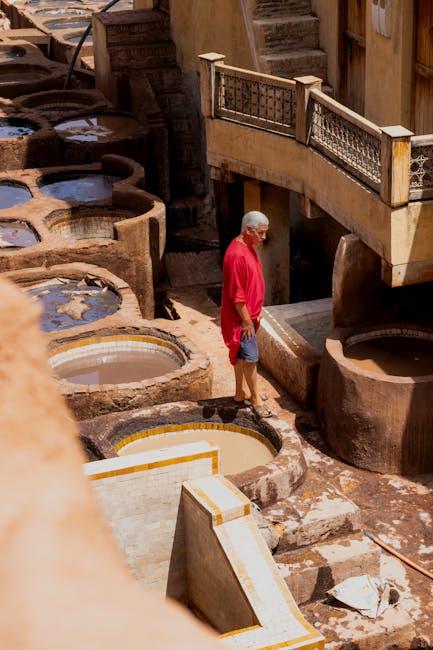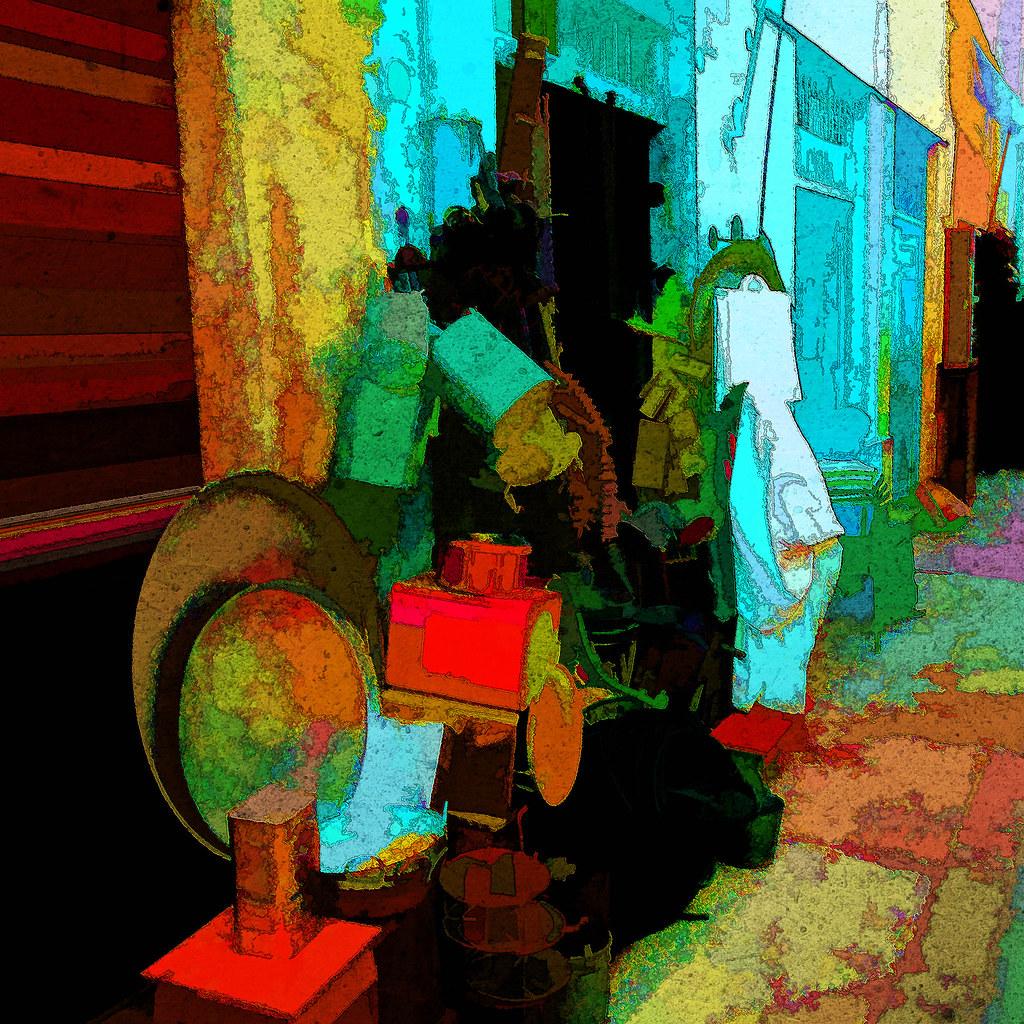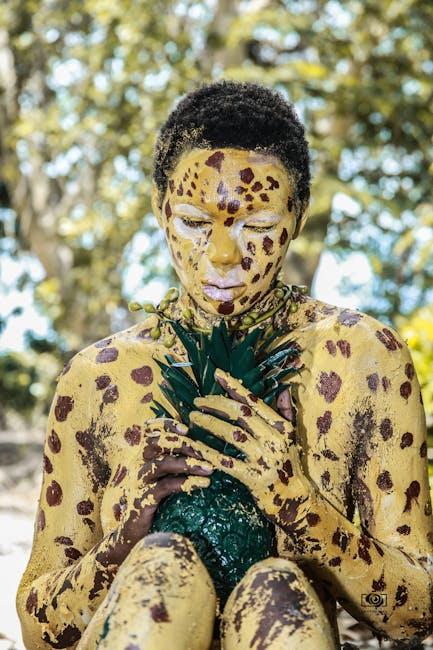In the vibrant tapestry of human creativity, African art stands out as a testament to the continent’s rich cultural heritage and diverse expressions. From the intricate beadwork of the Maasai to the bold strokes of contemporary Nigerian painters, African art encompasses a multitude of traditions, each telling its own unique story. As interest in these masterpieces grows, so too does the allure of exploring local markets where authenticity and craftsmanship converge. These bustling hubs are not just places to purchase art; they are cultural crossroads where history, tradition, and innovation meet. This article takes you on a journey through some of the most captivating markets across Africa, offering a guide to discovering the treasures that lie within and the communities that bring them to life. Whether you are an avid collector or a curious traveler, these markets provide a window into the soul of Africa, inviting you to experience the continent’s artistic legacy firsthand.
Exploring Vibrant Art Hubs Across Africa
Delve into the heart of Africa, where bustling art hubs are not just places to admire creativity but also vibrant markets that invite you to take a piece of local culture home. These markets are brimming with artisanal wonders that reflect the diverse and dynamic tapestry of African traditions. Whether you’re in search of bold paintings, intricate beadwork, or handwoven textiles, the continent’s art hubs offer an array of unique treasures waiting to be discovered.
- Marrakech, Morocco: Explore the souks of the medina, where traditional Moroccan crafts blend seamlessly with contemporary art pieces.
- Lagos, Nigeria: Known for its thriving art scene, Lagos is a must-visit for anyone interested in modern African art, with galleries and street markets showcasing everything from sculptures to digital art.
- Cape Town, South Africa: Wander through the colorful streets of the Bo-Kaap or visit the Zeitz MOCAA for an infusion of modern African art.
- Nairobi, Kenya: From Maasai markets to upscale galleries, Nairobi offers a vibrant mix of traditional and contemporary art forms.
- Accra, Ghana: Known for its bustling arts and crafts markets, Accra is a hotspot for vibrant textiles and handcrafted goods.
These art hubs not only provide a platform for local artists to showcase their talents but also allow visitors to engage with the rich cultural heritage of Africa through its myriad artistic expressions.

Discovering Unique Artisan Markets and Their Treasures
In the heart of Africa, a vibrant tapestry of colors, textures, and stories awaits in its bustling artisan markets. These markets are not just places to shop; they are living museums of cultural heritage and creativity. Visitors can explore a myriad of handcrafted treasures that reflect the continent’s diverse artistic traditions. From intricately woven baskets to bold, geometric beadwork, each piece tells a unique story of its origin and the artisan’s skill.
- Maasai Markets, Kenya: Famous for their colorful beadwork and traditional jewelry.
- Oshodi Market, Nigeria: Known for vibrant textiles and handmade leather goods.
- Marché Kermel, Senegal: Offers a selection of unique paintings and wood carvings.
- Curio Shops, Tanzania: Perfect for finding intricate carvings and Maasai blankets.
- Elmina Market, Ghana: A hub for kente cloth and beautiful, handcrafted pottery.
These artisan markets not only provide a shopping experience but also offer a deeper connection to the local culture. Each market is a world of its own, where the rhythm of life beats in harmony with the artisans’ craft. Whether you’re looking for a statement piece for your home or a meaningful gift, the markets of Africa are treasure troves waiting to be discovered.

Navigating Cultural Riches in Local Marketplaces
Exploring the vibrant marketplaces of Africa is akin to stepping into a living museum, where each stall tells a story woven with threads of history, tradition, and artistic flair. These bustling hubs are not just places of commerce but are gateways to understanding the soul of a community. Handcrafted textiles, such as the richly patterned kente cloth from Ghana or the intricately woven mud cloth from Mali, reflect centuries-old techniques passed down through generations. Jewelry stalls dazzle with pieces made from local materials like cowrie shells and semi-precious stones, each item echoing cultural significance and personal expression.
In these markets, visitors are encouraged to engage with artisans, gaining insight into the intricate processes behind each creation. Ceramic pottery and wooden sculptures, often inspired by indigenous motifs and storytelling traditions, offer a tangible connection to the region’s artistic heritage. For those seeking a unique piece to take home, consider browsing through stalls filled with baskets woven from natural fibers or leather goods crafted with meticulous attention to detail. Embracing the local market experience not only supports artisans but also fosters a deeper appreciation for the cultural tapestry of Africa.

Insider Tips for Authentic African Art Shopping
When diving into the vibrant world of African art, understanding the nuances of authenticity can elevate your shopping experience. Here are some essential tips to ensure your collection is both genuine and ethically sourced:
- Research the Artist: Before making a purchase, take time to learn about the artist’s background and style. Many local markets offer direct interactions with artists, providing an opportunity to hear their stories and inspirations firsthand.
- Understand the Craft: Different regions boast unique art forms, from intricate beadwork in South Africa to the elaborate masks of West Africa. Familiarizing yourself with these distinctions helps in identifying authentic pieces.
- Verify Provenance: Always ask for documentation or any available history of the artwork. Genuine pieces often come with certificates of authenticity or a detailed account of their origin.
- Fair Trade Practices: Supporting artisans who follow fair trade practices ensures that your purchase benefits the community and sustains traditional craftsmanship.
Embrace these tips as you explore the diverse art markets across the continent, each offering a window into the rich cultural tapestry of Africa.
The Conclusion
As the vibrant tapestry of African art continues to unfurl across global markets, the journey of discovering where to shop local becomes an invitation to engage with the continent’s rich heritage and diverse creativity. From bustling marketplaces in Marrakech to the serene galleries of Cape Town, each venue offers a unique glimpse into the soul of Africa’s artistic expression. Whether you’re an avid collector or a curious traveler, exploring these local markets is more than just a shopping experience; it’s a cultural immersion that fosters appreciation and connection. As you wander through these spaces, let the stories behind each piece guide you, reminding you that art is not merely an object to possess, but a narrative to cherish and share. So, as you set forth on your quest for African art, may your journey be filled with inspiration, discovery, and a deeper understanding of the vibrant cultures that shape this magnificent continent.


































